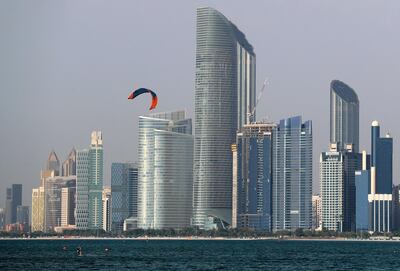Changes to the UAE's foreign ownership laws will spark interest from UK businesses looking for new trading relationships once the post-Brexit transition period ends on December 31, according to the British Chambers of Commerce.
Under the new regulations, commercial companies in the Emirates no longer need an Emirati shareholder for onshore sectors, a move that will open up a number of sectors to foreign investors.
“Our quarterly International Trade Outlook survey has in the last year or so demonstrated a significant rise in interest from British companies, particularly the SME sector in the UAE,” Anne-Marie Martin, director of Global Business Networks (GBN) at the British Chambers of Commerce, told The National.
“This will continue to accelerate as we move into new global trading relationships, post end of the UK-EU transition at the end of this year.”
Among the amendments outlined in the changes to the UAE’s 2015 commercial companies’ law, onshore companies will no longer need a major UAE shareholder, which will reduce overhead costs and make it easier for foreign investors to set up in the country.
Ms Martin expects large multinational brands “will most definitely be keen to explore setting up in the UAE now that the foreign ownership rules have changed”.
“However, the devil is always in the detail and I am sure that companies are considering these carefully,” she said.
The UAE is a popular tourism and business destination for the UK, with more than 5,000 British businesses and 120,000 British citizens living in the UAE, according to the British Business Group (BBG) in Dubai. Further, 1.5 million Britons visit the country from the UK every year.
“Foreign investment will inevitably create more prospects for trade, and UK companies, particularly SMEs, will be keen for opportunities to supply their goods and services into the UAE,” said Ms Martin.

John Martin St. Valery, chairman of the BBG, said the law change has attracted a flurry of interest from UK businesses keen to set up in the UAE.
“We saw heightened interest from UK businesses – only hours after the announcement,” he said.
“This is a major and long-awaited development to secure the UAE as the place in the Middle East to headquarter international businesses.”
Mr Martin St. Valery said the move was reminiscent of the aviation sector’s "open skies policy" of the 1980s, “which was a real game changer for global aviation”.
“Foreign direct investment to the UAE is already a compelling proposition due to the world-class infrastructure that has been built – communication, transportation, education, healthcare etc. The key barrier to entry to overcome has always been the foreign party obligation to cede equity on market entry,” he said.
What happens to the structure of existing British businesses is unclear, said Mr Martin St. Valery, and it may require existing local shareholders to make individual arrangements with their companies.
"The next six months will be crucial in understanding the mechanism to change and how to implement to the satisfaction of all parties," he said.
Katy Holmes at BBG said British-owned, Dubai-based businesses in its membership are grateful to the UAE for the support to date, with the changes set to enable "a deep desire for greater autonomy".
"We therefore expect to see further creativity, an increase in investor interest and therefore greater prosperity for the region in line with the Dubai Industrial Strategy 2030 that aims to elevate Dubai into a global platform for knowledge-based, sustainable and innovation-focused businesses," she said.
While UK businesses in certain sectors such as oil and gas and defence already exist in the UAE, Ms Martin said there could be additional interest in these areas.
“The new rules will also encourage diversification in industry sectors and the advantage will be that this will create a closer working relationship between the markets, more employment opportunities and a greater cohort of smaller companies as part of these larger, more complex supply chains.”
Ms Martin said GBN will serve as a platform to drive that two-way trade and investment through its business group members in the region.


